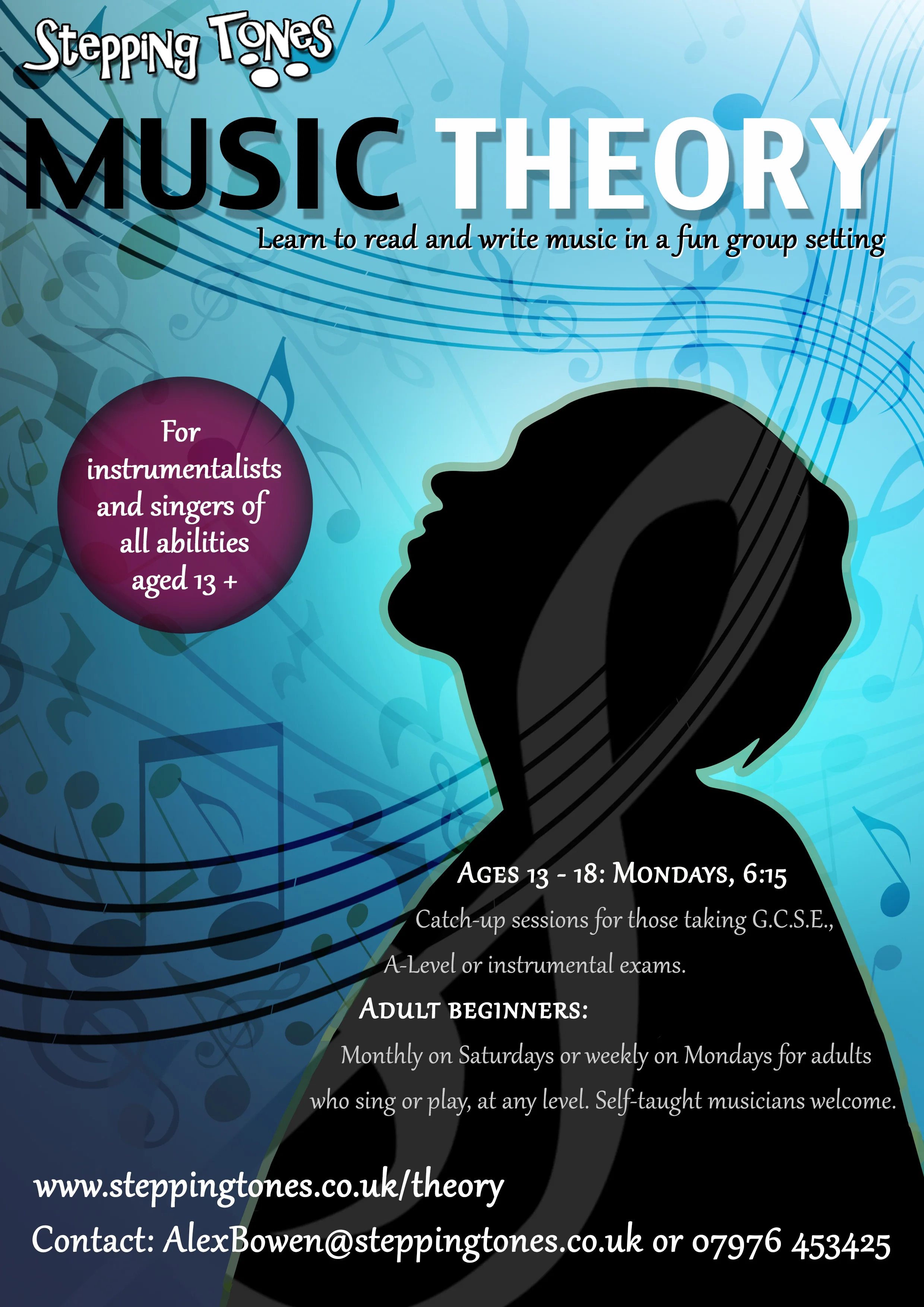MUSIC THEORY LESSONS - for adults or children who sing or play any instrument
How do I book a place? Click here.
When and where is it?
(Derby- The Voicebox) Wednesdays at 6:30 until 6:45pm - Grade 2/3 standard.
If you do not fit into this category but are interested in classes, please get in touch.
Who is it for? Currently, the weekly Wednesday class is suitable for those who are learning a musical instrument at Grade 1-5 level, and whose theory level is around Grade 2-3.
But, I already have an instrumental teacher? Some instrumental teachers include theory but, as an instrumental teacher myself, I realise that this can sometimes detract from practical elements of the lesson. By learning this separately, you can pay your written work thorough attention, without losing any of your instrumental lesson time. Don't forget to mention to your instrumental teacher if you are considering music theory lessons.
I'm a self-taught adult who's never had any tuition but I want to read music. Do you have lessons for me? Yes. The lesson is predominantly theoretical, but I spend time making sure students can correctly clap rhythms and have a grasp of how their written music sounds. If you've never played from written music before, I can recommend what kind of books to start on for the instrument you play and I can link that with the written work we do in class.
Please get in touch, if you would like to be notified when an adult course starts.
Do you follow an exam syllabus?
Yes. I follow the ABRSM grades, for which I'll expect you to buy a workbook (priced between £3 and £5 per grade, depending on the level you're at). If you're not sure of your level, get in touch and I can help you.
Under which circumstances do I need to do theory?
Music theory is invaluable for all musicians - it provides you with ways to understand music at an intellectual level, and equips you with the language to describe music, both verbally and through notation. This enables you to communicate better with other musicians and to understand the music you play on your own. This in turn, helps you to function better in bands, as a songwriter, a performer and in ensembles or orchestras.
If you wish to study ABRSM Grade 6 or higher, the prerequisite is either Grade 5 Music Theory or Grade 5 Practical Musicianship.
If you are planning to study music at A-level, Grade 5 Theory provides a good starting point, whereas GCSE music is a useful springboard, but has a slightly different focus. Many of my students who begin A-level music, having not yet completed Grade 5 theory, find A-level music too much of a jump from GCSE and struggle. If you are one of these people, please do get in touch - help is at hand!
About Grade 5 Theory ...
Many instrumentalists don't even consider learning music theory until Grade 5 practical, by which time they're playing catch-up. It's much better to gradually work through the theory grades alongside your practical work. This means less cramming and also, you'll find the theoretical work helps your playing!
Unfortunately, it's not uncommon for students to quit instrumental lessons directly after Grade 5, because the written element seems too daunting. I teach everything incrementally, starting from the very basic, progressing right up to the very advanced. At each stage students should find their studies a challenge, but not an impossibility! The classes are lively, friendly and enjoyable. If you've struggled with theory before and find it boring, come along and be prepared to be pleasantly surprised!
